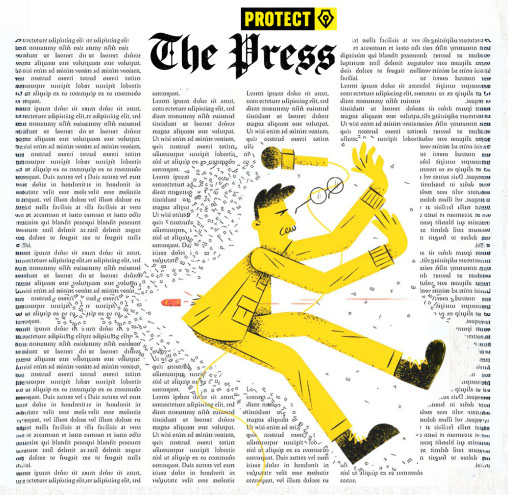Yesterday, the Committee to Protect Journalists (CPJ) and Amnesty International published the findings of a joint investigation into Mexico’s Mechanism for the Protection of Human Rights Defenders and Journalists.
The report, “‘No one guarantees my safety’: The urgent need to strengthen Mexico’s federal policies for the protection of journalists,” revealed that the Mechanism failed to adequately evaluate risks faced by journalists and at times implements ineffective protective measures. Furthermore, eight journalists have been killed since its inception in 2012.
“After years of incessant bloodshed and corrosive impunity, the time is now for the Mexican state to take action and show that it is finally willing to take its obligations towards freedom of the press seriously,” said Jan-Albert Hootsen, CPJ’s Mexico representative.
Read the report and watch the press conference.
- Pakistani journalist Imran Riaz Khan held in terrorism investigation
- Kashmiri journalist Aasif Sultan re-arrested hours after arriving home from jail
- Dutch journalist Sjoerd den Daas and camera operator detained by Chinese police while covering protest
- CPJ calls on Hong Kong to scrap proposed law that could further criminalize critical reporting
- CPJ welcomes acquittal of Nigerian journalists Gidado Yushau and Alfred Olufemi and calls for legal reform
- Turkish police hold 3 journalists for 3 days on suspicion of ‘financing terrorism’
- Morocco prison confiscates journalist’s letter to wife, prompting hunger strike
Senegalese reporter Ndèye Maty Niang, also known as Maty Sarr Niang, would have jumped at the chance to report on the political crisis gripping her country since the president postponed elections in early February.
However, Niang can’t cover the news because she’s in a women’s prison awaiting trial, and one of at least five Senegalese journalists jailed since last year in connection with their work.
Journalist detentions in Senegal are indicative of a broader crackdown on press freedom and dissent, which has called into question Senegal’s reputation as a stable democracy.
Read the feature and watch our video on Senegal’s deteriorating press freedom conditions.
Separately this week, as part of the “A Safer World for the Truth” initiative, CPJ’s Asia Program Coordinator Beh Lih Yi, and partner organizations, met with the Philippine Department of Justice (DoJ) and the Philippine National Police (PNP) to provide new and actionable information that could lead to the arrest of the alleged mastermind behind the 2011 murder of radio journalist Gerry Ortega.
Additionally, spyware against journalists and abusive lawsuits were among the main concerns raised in the annual report of the Council of Europe’s Platform for the Protection of Journalism and Safety of Journalists released this week, of which CPJ contributed.
What we are reading (and listening to)
- Foreign media is banned from Gaza. Biden should press Israel for access — Rob Mahoney, The Hill
- An online protest movement exposes corruption in Uganda. Officials and others are rattled — Rodney Muhumuza, Associated Press
- The struggles of women journalists in Lebanon — Nadine Moubarak, The Samir Kassir Foundation’s SKeyes Center for Media and Cultural Freedom
- The risks of being a journalist today are too high, and we need to talk about it — Khanyi Mlaba, Global Citizen
- Ethiopia’s deepening crackdown on dissent — Laetitia Bader, Human Rights Watch
